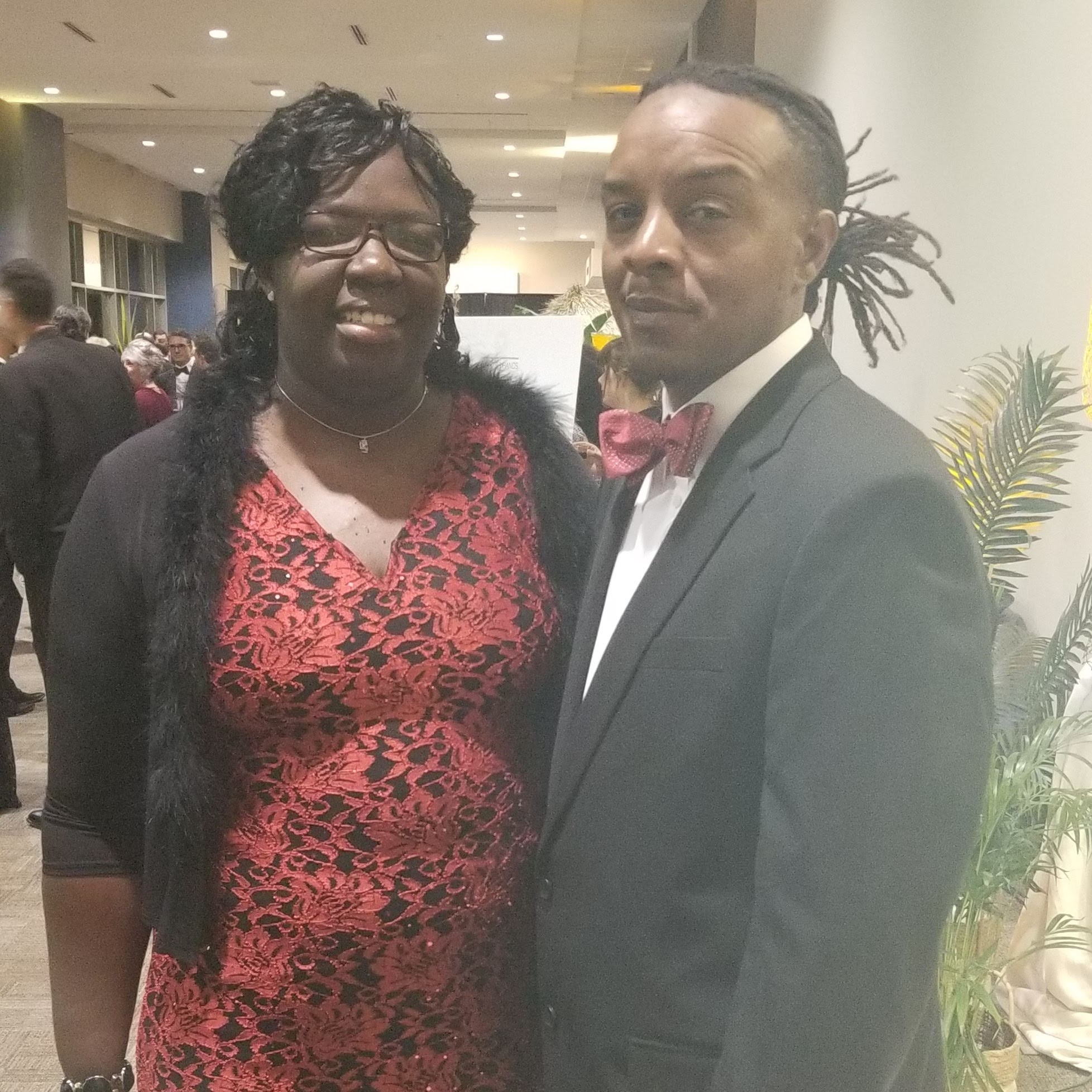Concurrent Sessions VI | April 25 | 11:30 AM – 12:20 PM
Session 6A: My Team is Remote - Now What Do I Do?
Description
There is no question that certain aspects of the employee/employer relationship have evolved and it has become more complex and challenging. The Great Resignation became a quick reality followed by the Great Job Migration and Quiet Quitting. These phenomena have required organizations to take a step back and re-evaluate how operations and employees are managed. This is certainly important as higher education must take an interest in how it manages remote work, leave benefits, and other associated benefits in a fiscally responsible way. Join us as we explore best practices as it relates to managing remote employees and the need to take a deep dive into impacted benefits.
Learning Objectives
1. Learn how universities are using flexible work and other new approaches to elevate the employee value proposition to increase retention and overall performance.
2. Recognize the need and understand how to manage employee benefits with remote work and various leave options.
3. Learn how to creatively and effectively manage leave of absences that will protect your organizations financial resources.
Speakers
 Sharen Beaulieu, Furman University, Associate Vice President of Human Resources Sharen Beaulieu, Furman University, Associate Vice President of Human Resources
Sharen L. Beaulieu, Associate Vice President of Human Resources, has been employed with Furman University for three and half years. Prior to her appointment with Furman University, she was the Associate Vice President of Human Resources with the University of New England for over 13 years. Sharen has been a leader in Human Resources for 29 years in various industries such as higher education, heavy industrial manufacturing, warehousing, logistics, transportation, and distribution. Sharen earned a Bachelor of Arts degree in Business Administration with a concentration in Human Resources from Piedmont University in Demorest, Georgia and holds a Senior Human Resources Management Certification from the Society for Human Resources Management (SHRM-SCP).
She also received a Human Resources Management Certification from Kennesaw State University in Kennesaw, Georgia and is currently enrolled with University of Cambridge their Diversity, Equity and Inclusion program. She is currently a member of the Society for Human Resources Management (SHRM) and the College and University Professional Association for Human Resources (CUPAHR). Sharen also is a University Representative for the South Carolina Women in Higher Education and serves as the Chapter President with South Carolina’s College and University Professional Association for Human Resources (SCCUPAHR).
 Kristin Austin, Furman University, Assistant Director of Human Resources Operations Kristin Austin, Furman University, Assistant Director of Human Resources Operations
Kristin Renee Austin currently works for her alma mater, Furman University as the Assistant Director of HR Operations in the Human Resources Department. She is lowcountry girl with roots from Smoaks, SC located in Colleton County. She pursued her post-secondary education at Furman University and received a Bachelor of Arts Degree in Computing-Business and obtained her master's degree in business from North Greenville University. Before going to Furman in 2014, she worked for the Spinx Oil Company in the Human Resources department. She loves her job and finds joy in what most people don't, "the world of benefits". She continues to give of herself unselfishly and has an eagerness to make a difference in the lives of others is a precedent that Kristin always displays in every aspect of her life, and it is no different when dealing with the faculty and staff at Furman. One of her favorite pastimes is reading and playing noon-ball with faculty and staff of Furman University. She sees the value that all employees bring to the table and works hard to engage employees to recognize their skills, dedication and framework that helps Furman to accomplish its mission.
Session 6B: Ethics in a Changing World
Description
This session will look at the topic of ethics in higher education. We will examine some recent cases of ethical failure and ultimately discuss ways you can navigate ethical issues in an increasingly complex world.
Learning Objectives
1. Participants will learn about recent ethical trends in higher education.
2. Participants will learn ways to navigate ethical issues in higher education.
3. Participants will develop strategies for examining ethical situations.
Speakers
Kevin Robinson, Auburn University, Associate Vice President of the Office of Audit, Compliance & Privacy
Kevin Robinson is the Associate Vice President for Audit, Compliance & Privacy at Auburn University and serves as AU’s Chief Audit & Compliance Executive. He is also a past president of the Association of College and University Auditors (ACUA). Kevin also serves as an adjunct member of the graduate faculty in the School of Accountancy at Auburn University’s Harbert College of Business. Kevin is a frequent speaker on the topic of ethics, occupational fraud, fraud prevention, internal controls, risk management, and leadership. Kevin is the primary author of the highly popular monthly electronic newsletter “Case-in-Point: Lessons for the Proactive Manager” which discusses emerging risks in higher education.
Session 6C: Cost and Revenue Analytics - Determining the Right Model for You
Description
Cost and revenue analytics have a variety of uses in higher education from determining the economics of new academic programs and supporting the budgeting and planning process, to strategic resource allocation, administrative program review, and even campus master planning. This presentation will outline cost and revenue modeling and analytics as it applies to higher education. The presenters will take attendees through the spectrum of cost and revenue modeling and analytics options, from simple department-level modeling to more complex institution-level modeling and specialized costing applications (including environmental modeling). The audience will be exposed to the potential uses, benefits and challenges associated with cost and revenue modeling and analytics, with particular emphasis on data challenges/maturity and on how different institutions have found success in implementing cost and revenue analytics solutions. At the end of this session attendees will have a greater appreciation for how to embark on the road to creating a robust cost and revenue analytics capability at their institution.
Learning Objectives
1. Be able to identify how and why cost and revenue analytics will benefit your institution.
2. Learn how other institutions have overcome challenges when developing cost and revenue analytics capability.
3. Be able to determine what sort of cost and revenue model and analytics is best for your institution.
Speakers
 Anthony Pember, Cherry Bekaert Advisory, Director, Digital Advisory Anthony Pember, Cherry Bekaert Advisory, Director, Digital Advisory
As a director in Cherry Bekaert's Digital Advisory practice, Anthony brings over 25 years of experience in the cost and performance management and data analytics fields. He is respected as an innovator and thought leader in cost management and has extensive experience leading a variety of business and information technology initiatives within higher education, not-for-profit, government, and commercial sectors. Anthony has worked with multiple universities in the United States, Canada, and Australia building cost models, performing critical data analysis, and advising clients in areas associated with cost management and strategic resource alignment. Through this work Anthony has gained significant insights into higher education data and operations.Utilizing his years of experience, Anthony has been a panelist and speaker on various topics around cost and performance management.
Anthony has also delivered in-depth training to a wide variety of audiences on the use of cost management tools and techniques to enhance organizational improvement and cost effectiveness. Anthony has published several articles on the use of management accounting principles to drive environmental performance - a novel approach to using traditional management tools to manage and measure environmental impact. Anthony currently serves as a subject matter expert for the Consortium of Advanced Management - International (CAM-I), a preeminent non-profit cost, performance, and process research organization.
Dr. Adam J. Raab, Embry-Riddle Aeronautical, Senior Financial Analyst, Institutional Research
At Embry-Riddle Aeronautical University, Adam provides data-driven decision support to institutional senior leadership in the areas of academic program costing, competitive and peer analysis, and institutional rankings. He oversees the economic performance model for the institution and provides valuable insights into the economic and financial health of the institution.Before joining the Office of Institutional Research in 2018, Adam spent ten years in the Office of Strategic Planning and Analysis. Throughout this time, he managed peer analysis systems, developed an administrative assessment program, facilitated the development of an institution-level academic program financial review process and supported institutional rankings reporting and strategy. Adam holds a Doctor of Education specializing in Higher Education Leadership from Nova Southeastern University, as well as both a Bachelor and Master of Science in Aeronautics degree and an Associate of Science in Aviation Maintenance degree from Embry-Riddle Aeronautical University.
Session 6D: Optimizing the Procurement Organization: Lessons Learned and Opportunities
Description
Procurement organizations at higher education institutions have transformed into essential resources for chief financial officers in the past decade. Technology and talent have been instrumental in the evolution. Once considered a barrier for departments, procurement organizations ensure funds are expended in alignment with the institution's goals, manage compliance efficiencies, and generate revenue. Mature procurement organizations are now analytical and strategic. Texas Tech University will share lessons learned in the transformation process, beginning with a manual organization, and transforming to an analytic and strategic organization. Jennifer Adling and Nancy Cartwright will present case studies on process improvements at Texas Tech University that can be adopted and will provide resources for adding value to your institution.
Learning Objectives
1. Obtain examples of resources available to optimize the procurement organization.
2. Trends in procurement/contract industries.
3. Analysis of lessons learned in the procurement optimization practice.
Speakers
Jennifer Adling, Texas Tech University, Chief Procurement Officer
Jennifer Adling is the Chief Procurement Officer at Texas Tech University. She joined the university in 1999 and oversees Strategic Acquisition, Contract Administration, Payment Strategies, Vendor Services, Pcard Services, Travel Services, and Business Intelligence. In her CPO role, she oversees the functions of these offices for both Texas Tech University and the Texas Tech University System. A graduate of Texas Tech University with a B.S. in Personal Financial Planning, she received her Certified Texas Purchaser and Certified Texas Purchasing Manager from the State of Texas in 2001. Jennifer was a project leader in the Banner and Jaggaer implementations for the university. Jennifer received the Distinguished Service Award from the National Association of Educational Procurement in 2016 and 2022. She currently serves as the Chair of the E&I Cooperative Board of Directors and participates on the E&I Strategic Advisory Board and the Jaggaer Customer Advisory Board.
Nancy Cartwright, Texas Tech University, Section Manager - Strategic Acquisitions
Nancy Cartwright has been with Texas Tech University since 2014. She currently serves as the Strategic Acquisition Section Manager for Procurement Services. She is an experienced public speaker and communicator and enjoys engaging in and leading departmental and vendor training, as well as participating in monthly Procurement Services forums. Nancy oversees a team of ten staff members and has been instrumental in many optimization initiatives at TTU.
Session 6E: Washington Update
Description
Halfway through the first term of the Biden Administration, where do things stand for higher education? What impact would a politically fractured Congress have on the administration's plans? Hear the latest developments unfolding in the nation's capital, such as the Department of Education's and other federal agencies' efforts to improve their rulemaking processes. You'll also learn about advocacy action items for the higher education sector, as well as noteworthy action in Congress and government agencies.
Learning Objectives
1. Explain what the federal appropriations and other legislation affecting higher education imply for your institution and why Congress allocates money in the ways that it does.
2. Discuss the latest legislative, regulatory and judicial developments impacting higher education and hear what influences lawmakers to legislate in particular ways.
3. Be a better advocate for your campus with federal policymakers
Speakers
Ashley N. Jackson, NACUBO, Director of Government Affairs
Ashley N. Jackson, Director of Government Affairs for the National Association of College and University Business Officers (NACUBO leads advocacy efforts on Capitol Hill on issues affecting business officers such as higher education reauthorization, tax and accounting policy, and annual appropriations. Prior to joining NACUBO, From 2015 to 2022, Jackson worked with the National Asphalt Pavement Association (NAPA) to secure $3 million for the asphalt airfield pavement research program as part of the Federal Aviation Administration reauthorization. She focused on surface transportation and aviation authorizations, annual appropriations bills, highway funding, and Asphalt research as NAPA's point person on Capitol Hill. In addition to managing the NAPA Political Action Committee, Jackson lead the planning and execution of the annual Transportation Construction Coalition Legislative Fly-In, which brought more than 500 highway contractors to Washington each Spring to discuss issues affecting highway and airport infrastructure funding with lawmakers.
|